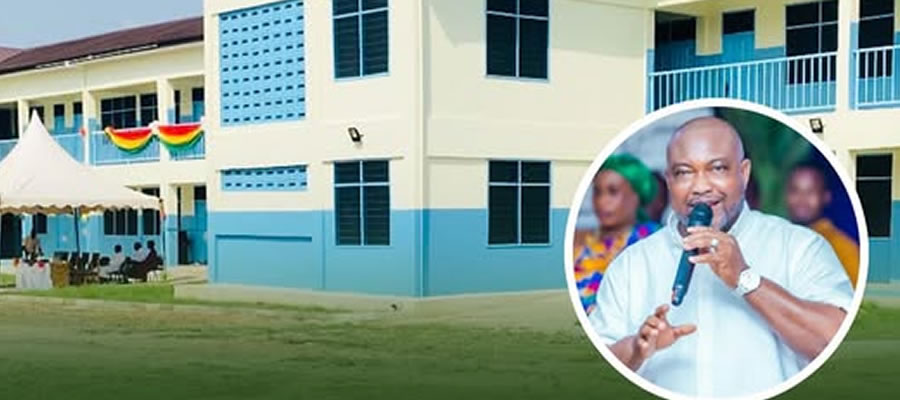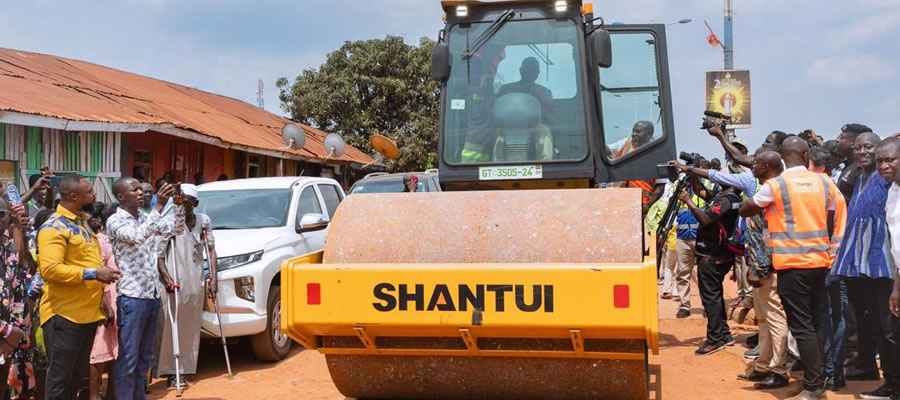

Water Situation
Water is a very essential resource in every community’s development. It is therefore very important for every member of the community to have access to portable water for consumption.
The need to assess the existing situation of water and sanitation in the process of the plan preparation is very crucial. The findings will serve as inputs which will advise both policy and strategy formulation.
Sources of water in the District are piped water, boreholes, hand-dug wells, rivers/streams and rain water. Currently, there are a couple of boreholes within the District with some functioning and others not functioning. In addition; 3No Small Town Water Systems have been completed at Fetentaa, Nsapor and Adom. In all, access to potable water coverage is 77.4 per cent as against target of 92 per cent. The main sources of water supply in the District include pipe borne (56.3%), boreholes (36.2%) and others (7.5).
The following challenges face water supply system in the District:
• Poverty
• Illiteracy
• Inadequate number of trained area mechanics
• Irregular release of project funds
• Poor road conditions
Mechanization of boreholes for communities with high population could also be considered in places like Tewbaabi, Ayimom, Koraso and Nkantanka and the rest.
Water Security
Access to safe water constitutes essential ingredients for safeguarding the health and lives of the people. Sources of water in the District are pipe-borne water, boreholes; hand-dug wells fitted with pumps, open hand dug wells, rivers/streams and rain water. Boreholes are the commonest sources of drinking water for the people. Currently, there are a number of boreholes in the District with majority of them functioning. Pipe borne water is very much accessible to the people in the District due to an expansion of the supply system in 2016 by the government and the World Bank.
Portable water coverage in the District is about 76.4% indicating that some communities still face difficulties in access to water for domestic purposes.
Currently, the Community Water and Sanitation Agency is constructing 10 boreholes with financial support from the Government of Ghana to increase access to potable water to a greater proportion of the population in the District.
Solid Waste Collection
The various towns practices crude dumping system of solid waste management with exception of the Fetentaa town and the Refugee camp which has three (3) Refuse Transfer Stations with communal containers.
There are eight (8) crude dumping sites which needs evacuation and placement of communal containers.
The following crude dumping sites need urgent evacuation and placement of communal containers:
1. Jamdede: 2 crude dumping sites
2. Jinijini: 3 crude dumping sites
Currently only two institutions within the District are practicing the Door to door waste collection system and registered with the Zoom lion Company Limited.
Liquid Waste Management
Public latrines are fairly distributed in the District whilst smaller communities use pit latrines and practice open defecation. A low percentage of the population uses household latrines ranging from WCs to KVIPs. The absence of septic tank emptier vehicle to service the numerous public latrines is a major setback in the management of liquid waste. High cost and untimely availability of the vehicle prevents landlords from building and using household latrines.
This notwithstanding, there are quite a substantial number of public and domestic latrines in the District. They range from WCs, KVIPs and Pit Latrines. There is no proper disposal waste system for liquid waste in the District.
Sanitation activities are vigorously being pursued in the District Assembly. Liquid waste management in the District continues to be an overwhelming task. A large number of households and institutions are without household and institutional toilets. There is therefore always high demand for public toilets, even in the urban centers.
Date Created : 2/1/2019 4:43:52 AM











 facebook
facebook
 X
X
 Youtube
Youtube
 instagram
instagram
 +233 593 831 280
+233 593 831 280 0800 430 430
0800 430 430 GPS: GE-231-4383
GPS: GE-231-4383 info@ghanadistricts.com
info@ghanadistricts.com Box GP1044, Accra, Ghana
Box GP1044, Accra, Ghana